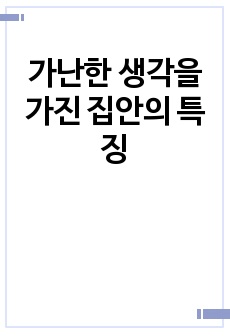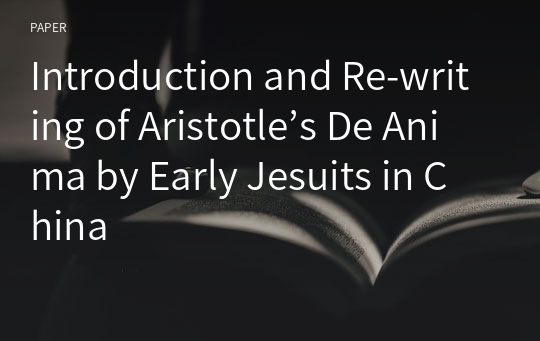Introduction and Re-writing of Aristotle’s De Anima by Early Jesuits in China
* 본 문서는 배포용으로 복사 및 편집이 불가합니다.
서지정보
ㆍ발행기관 : 서강대학교 철학연구소
ㆍ수록지정보 : 철학논집
ㆍ저자명 : Vincent Shen
ㆍ저자명 : Vincent Shen
목차
1. Rehabilitating Jesuits’ Merit2. Jesuits’ Introduction of Aristotle to China
3. Why Aristotle?
4. J. Aleni’s Xingxue Cushu
5. Human Soul in Linyan lishao
6. Xia Dachang’s Xinshuo(性說)
7. Platonic Ethics against Aristotle’s Body-Mind Unity
Conclusion
영어 초록
This paper explores the historical and philosophical context and meaningof the introduction of Aristotle’s philosophy, in particular, his theory of
soul by way of translation in the manner of rewriting by the early Jesuits
in China. By way of introducing Aristotle’s person and rewriting his text,
the early Jesuits in China and their Chinese followers have allowed
Aristotle and his theory of soul to migrate to China and be absorbed
gradually into the Chinese context. This is illustrated in this paper by the
rewriting of Aristotle’s De Anima and its adoption by early Chinese
Christians. The effort in bringing Aristotle’s De Anima and Chinese theory
of human nature into an early form of synthesis in Aleni’s Xingxue
Cushu, Sambiasci’s Lingyan Lishao and Xia Dachang’s Xingshuo should
not be unfairly neglected in the history of Chinese philosophy. Their
contribution to the meeting of western philosophy and Chinese Philosophy
is indeed a big event in the history of world philosophy.
We will examine also the negative sides of the introduction of Aristotle,
in particular his concept of substance, and the Jesuit’ understanding of
ethics based on their interpretation of Aristotelian theory of soul, that had
given a hindrance to a deeper understanding of some basic ideas in
Chinese philosophy and communicate in a better terms with Daoism and
Buddhism. Without any intention to accuse any error committed in the
past, this paper intends to be a critical self-understanding of the historical
process of meeting Asian and Western philosophical traditions, in view of
a more fruitful philosophical and religious dialogue between them.
However, there is no justifiable pretext of neglecting the historical
importance of Jesuits’ introduction of Aristotle’s philosophy, in particular
his theory of soul, into China and East Asia.
After a brief introduction related to the rehabilitation of Jesuit’s merit in
East Asian philosophy, this paper will discuss the Jesuits’introduction of
Aristotle to China and its reasons of doing it. Then it will proceed to
examine different projects of translation/ rewriting Aristotle’s De Anima in
Aleni’ Xingxue Cushu, Sambiasci’s Lingyan Lishao and their impact on an
early Chinese Christian Xia Dachang’s Xingshuo, and examine Jesuits
Platonic Ethics based on their re-interpreting Aristotle’s Body-Mind
relation, and it’s impact on the Chinese Christian thought at that time,
before we can come up to some concluding remarks.


























